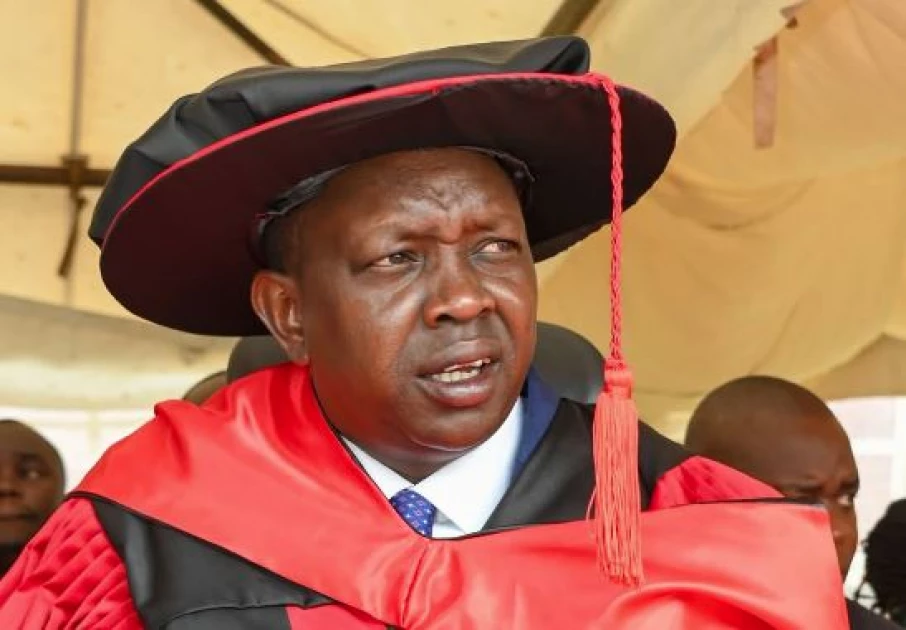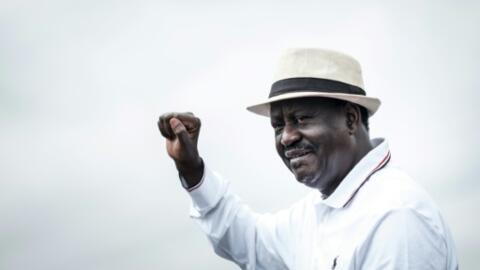
Dear Oscar Sudi, Kapseret is lucky to have you as their MP
Dear Hon. Oscar Kipchumba Sudi, MP for Kapseret, mkarabati of our times, receive salutations from this son of Kano.
Let me begin by congratulating you on your empowerment event in Kapseret. I saw the photos on social media. What a show! Motorbikes lined up like a boda boda dealership, milk cans gleaming in the sun like symbols of economic rebirth, and posho mills standing tall like monuments to your generosity.
Mheshimiwa, to be in your shoes must be a difficult task. How do you determine who among your 190,000 constituents will benefit from this generosity? What criteria do you use to select beneficiaries? But since you’ve done it for so long, I know there’s an internal algorithm—which I hope doesn’t prioritise sycophancy over suffering, or political loyalty over actual need.
Lakini, are you not afraid that people will ask where you got the money for all this “economic empowerment,” considering that your salary as an MP is public information—and not nearly enough to buy just one line item from that day’s extravaganza? Are you not scared of the Ethics and Anti-Corruption Commission (EACC) and the Kenya Revenue Authority, with their constitutional mandate to conduct lifestyle audits that could easily trigger criminal proceedings?
Forget the institutions. Aren’t you afraid the people of Kapseret might start connecting the dots—linking the missing drugs in hospitals, the broken roads, and the collapsing classrooms to this sudden generosity? You’re not afraid at all? Because I would be. I’d be terrified to even be remotely associated with a leadership style that breaks public systems only to return with band-aids. It’s the oldest trick in the book: loot with one hand, dish crumbs with the other.
Mkarabati, I’m genuinely curious: as a two-term Member of Parliament, do you believe this is sustainable? Or have you at least considered that your actual role—legislation, representation, and oversight—could be the magic bullet that lifts your people out of poverty?
Hear me out. Instead of these staged PR stunts with milk cans, imagine using your parliamentary seat to push for tax reforms that benefit your people. Kapseret’s poverty rate is 34.8%. That’s one in three people living below the poverty line. But they don’t need handouts—they need policies.
As you’ve admitted before, maybe the work of reading finance bills, proposing amendments, and making sense of numbers can be exhausting—especially for you, mkarabati. I’d be exhausted too. Because who wants to sit through tedious budget debates when you can hand out a motorbike, pose for photos, and no one will ask where the money came from?
And therein lies the con. Who wants to fix the public health system when you can pay hospital bills for a few on camera? Who wants to push for better roads when you can donate a tuk tuk and leave the rest to Jesus? Who wants to do the hard work of policy when performative charity gets you standing ovations?
But Oscar, just like you’ve proven that one’s background can’t stop them, I need you to go a step further: go back to school. It doesn’t matter how often we bastardise education or how many degrees we fake. The truth remains—education, even a single diploma, has the power to stretch the mind. It teaches us to think. And thinking is dangerous to anyone peddling confusion as leadership.
Mkarabati, do you ever feel like you’re the perfect case study of what happens when charisma trumps competence? A poster boy for what we’ve accepted as leadership in this country: loud, dramatic, allergic to substance, and obsessed with optics?
Hon. Sudi, it’s thinking—quality, rigorous thinking—that builds nations, and I know deep down, you know this. No country has ever developed through roadside theatrics, helicopter landings, or motorcycle giveaways. But through thinking that questions why we normalise broken hospitals, why schools have no teachers, and why poverty is criminalised while theft in government is romanticised.
Finally, as 2027 approaches, are you not afraid of the voting power of the people of Kapseret? That they might call your bluff and choose a son or daughter who’s chewed books and digested them properly? That they no longer want five more years of comic relief and showbiz philanthropy, but a legislator who can read, debate, and write a bill?
Because electing thinkers raises the collective IQ of Parliament. And when the August House is full of thinkers, Kenya benefits. But when it’s full of sycophants and showmen, the nation bleeds.
But anyway, as you already know, you are not the problem. You’re just a symptom. The disease is our collective tolerance for mediocrity, our hunger for showmanship over substance. But we can still heal. We can still demand more—not more of these token gestures—but real policies. Better oversight. Actual representation.
Not milk cans and motorcycles. But roads. Schools. Jobs. Dignity.
With regretful amusement,
The Son of Kano,
Tired of tokenism sold as transformation.



It’s the choice of words and style for me! Every Kenyan should read this!
Thank you for being here Stella.